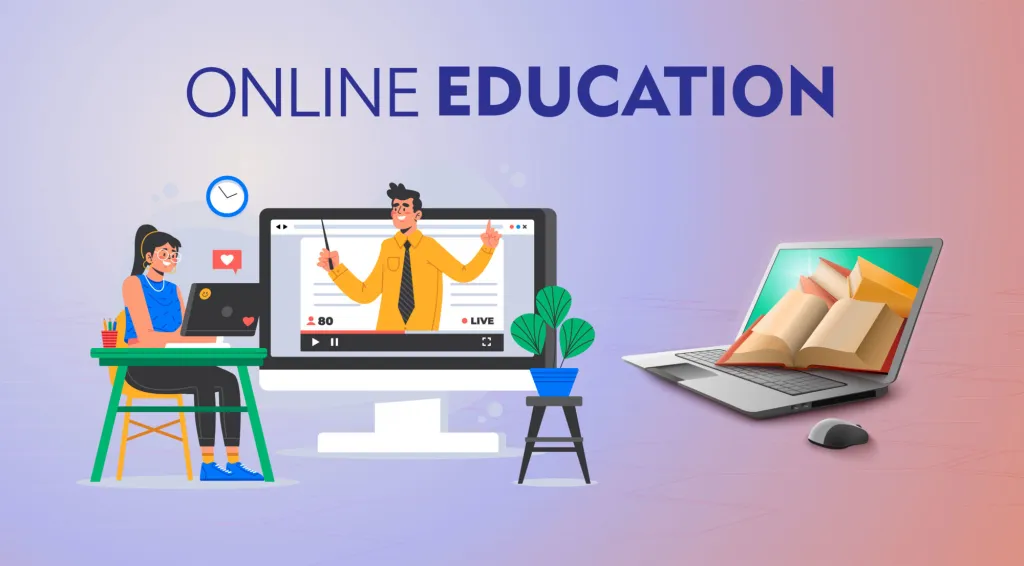Online education has transformed the way people acquire knowledge. Whether you’re enhancing your career, gaining new skills, or pursuing a hobby, the internet has made learning more accessible and convenient. With advances in technology and widespread internet access, an increasing number of learners are opting for online platforms to meet their educational needs. But what makes online education a revolutionary choice?
Here are the key advantages of online education and how it can redefine your learning journey.
Accessibility of Online Education
Learn from Anywhere
Online education removes geographical barriers, enabling access to top-quality education regardless of location. With just an internet connection, learners from bustling cities to remote areas can join world-class programs without the need to relocate.
Inclusive for All Ages
Online education caters to learners of all stages and ages, from high school students and working professionals to retirees. This inclusivity makes lifelong learning an accessible and achievable goal for everyone.
Cost-Effectiveness
Affordable Tuition
Online programs often have lower tuition fees compared to traditional institutions. Some platforms even offer free or low-cost courses, reducing the financial burden of higher education.
Save on Commuting and Living Costs
Without the need to commute or move closer to a campus, students save on transportation and housing expenses, making education significantly more affordable.
Lower Material Costs
Online education relies on digital resources like eBooks and video lectures, which are often free or less expensive than traditional textbooks, reducing overall costs for learners.
Flexibility and Convenience
Self-Paced Learning
Online programs allow students to progress at a pace that suits their learning style. Whether fast-tracking a course or taking extra time to understand a concept, learners have full control over their schedules.
Adaptable Schedules
The flexibility of online education means you can learn whenever it’s convenient—whether during early mornings, late nights, or weekends—allowing you to balance other commitments.
Diverse Program Options
Wide Range of Subjects
From technical skills like artificial intelligence to creative fields like photography, online platforms offer courses on nearly every subject. Learners can explore topics that might not be available locally.
Recognized Certifications
Many online courses and programs provide certificates and degrees accredited by reputed institutions, enhancing resumes and career opportunities.
Technological Advantages
Interactive Tools
Online learning integrates modern tools like simulations, discussion forums, and interactive quizzes, making the experience engaging and effective. Live sessions and webinars create opportunities for real-time interaction with instructors and peers.
Digital Skill Development
Participating in online courses naturally enhances technical skills such as using digital platforms and collaborative tools—abilities that are vital in today’s job market.
Enhanced Learning Environment
Comfortable Study Spaces
Students can learn in their preferred environment, free from distractions typical of traditional classrooms. This allows for greater focus and personalization.
Tailored Learning Experiences
Many online platforms use adaptive technologies to customize content based on a learner’s pace and preferences, creating a more efficient and personalized experience.
Global Networking
Connect with a Diverse Community
Online education connects learners worldwide, providing exposure to varied perspectives, cultures, and ideas. This global interaction enriches the educational journey and opens doors to valuable collaborations.
Learn from Industry Leaders
Courses led by experts and professionals allow learners to gain firsthand insights and guidance, enhancing both knowledge and career prospects.
Environmental Benefits
Lower Carbon Emissions
With fewer commutes and reduced campus energy use, online education minimizes environmental impacts, contributing to sustainability.
Paperless Learning
Digital resources reduce reliance on physical materials, promoting eco-friendly habits among learners.
Skill Building Beyond Academics
Improved Time Management
Balancing online courses with personal responsibilities sharpens time management skills, an asset in any professional or academic setting.
Self-Motivation
Without the structure of traditional classrooms, online learners develop independence and a strong sense of accountability—qualities highly valued in the workplace.
Career Opportunities
Upskilling and Reskilling
Online education empowers professionals to learn emerging skills like coding, data analysis, and digital marketing, helping them stay competitive in evolving industries.
Enhanced Employability
Earning online certifications demonstrates a commitment to continuous learning, making candidates more appealing to employers.
Overcoming Barriers
Accessible for All Learners
Online education supports diverse needs, offering tools like closed captions and self-paced modules, ensuring equitable access for individuals with disabilities.
Bridging Social and Economic Gaps
Affordable and flexible options make quality education attainable for learners from all economic backgrounds, fostering equal opportunities.
Conclusion
Online education is reshaping the future of learning with its flexibility, affordability, and inclusivity. From acquiring valuable skills to advancing careers, its transformative benefits cater to learners across all walks of life. As technology evolves, so does the potential of online education. Embrace this innovative way of learning and unlock endless possibilities from the comfort of your home.
FAQs
- Is online education suitable for everyone?
Yes, it accommodates various learning styles, schedules, and personal circumstances, making it accessible to all. - Are online degrees valued by employers?
Most accredited online programs are recognized, provided they come from reputable institutions. - What tools are needed for online education?
A stable internet connection, a computer or tablet, and basic tech skills are typically sufficient. - How can I stay motivated while studying online?
Setting clear goals, establishing a study schedule, and engaging with peers and instructors can help maintain motivation. - What challenges does online education present?
Common challenges include self-discipline, technical issues, and reduced face-to-face interaction, which can be addressed with proper planning and resources.





